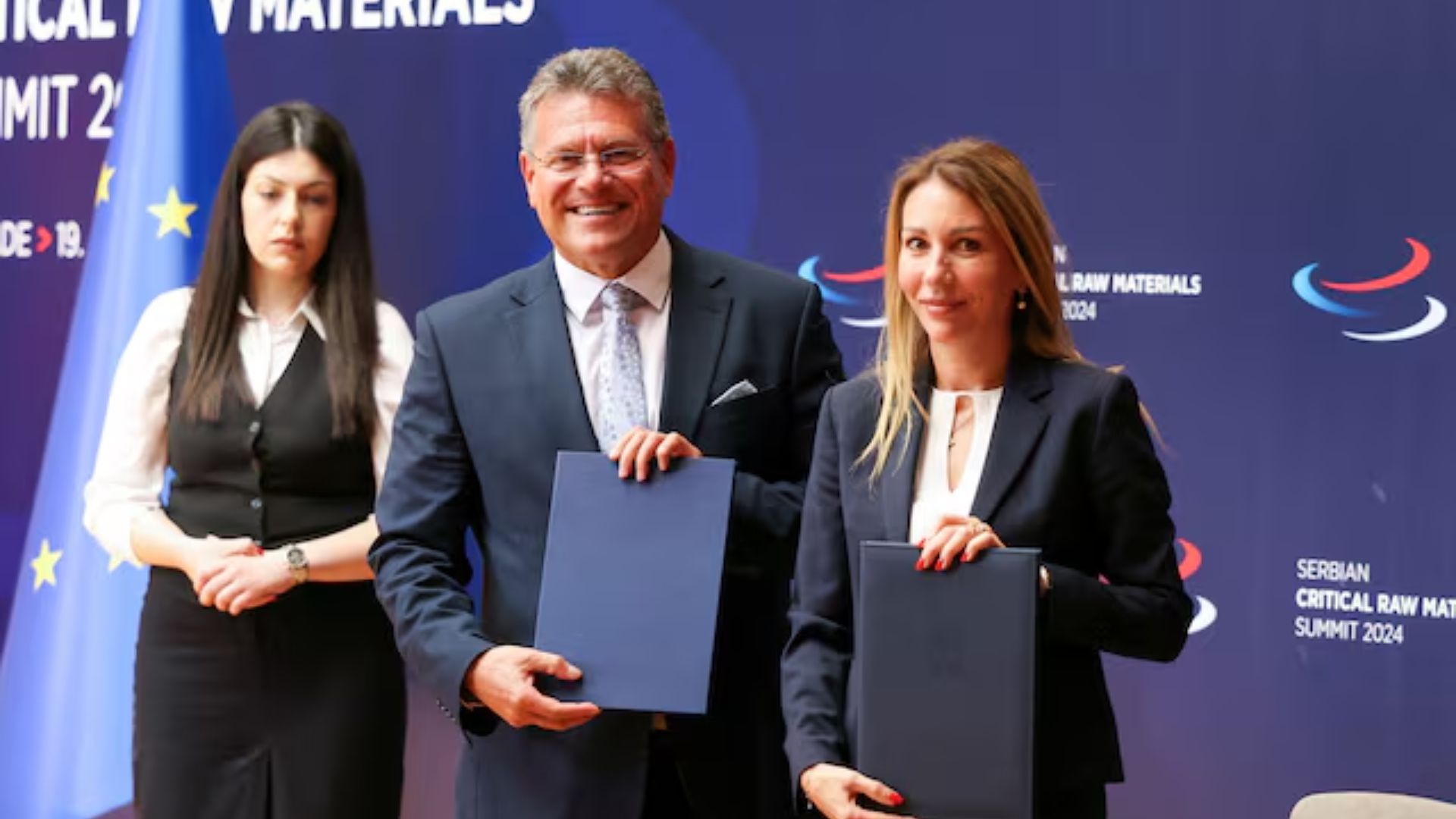BELGRADE, (Reuters) – Belgrade and the European Union signed a deal on Friday to give the EU access to raw materials mined in Serbia and strengthen their ties on production of sustainable raw materials, battery manufacturing and electric vehicles (EVs).
Rio Tinto is keen to start mining in Serbia’s Western region of Jadar and this week its licence to develop what would be Europe’s biggest lithium mine was reinstated, more than two years after it was annulled.
German Chancellor Olaf Scholz said Friday’s memorandum of understanding was vital for Europe’s independence and that it “increases resilience and promotes industry”.
“We need to reduce our dependencies, we need to have resilient structures in our supply chains, and that means that we need to develop new raw material tools around the world,” Scholz said.
He was speaking at a joint news conference with Serbia’s President Aleksandar Vucic and EU Commission Vice President Maros Sefcovic.
Sefcovic, who has been a strong advocate of boosting European supply chains, said EU candidate Serbia could be the first European country to command the whole chain needed to manufacture EVs, which starts with lithium mining.
The Jadar project has attracted fierce local opposition.
Vucic said it will be some time before it is fully underway, but that it would happen and had the potential to deliver the equivalent of 4% of last year’s gross domestic product (GDP).
Serbia’s GDP in 2023 was about $75 billion.
Serbian opposition and green groups have said they will start blockades of main railroads and junctions in August if the government does not end the project.
On Friday, several dozen activists from the Kreni-Promeni (Move-Change) movement protested against the Jadar project in front of the vast communist-era government compound in Belgrade.
“You do not do this (extract lithium) … where there is a high population density, and some of the most breathtaking scenery,” movement’s leader Savo Manojlovic said.
Asked about environmental concerns, Scholz said Jadar would “only work if it is oriented towards the standards that we consider correct” and that he had spoken to the head of Rio Tinto on the issue.
Germany’s Mercedes-Benz is a potential customer of lithium from Serbia and would support bringing more of the battery value chain to Serbia, the company’s chief executive Ola Kaellenius said in Belgrade on Friday.
“They are building a very modern mine and we are a potential customer. To make it economic, we would certainly have some of the value chain in the country,” he told Reuters. “Possibly up to the battery cell production … we would support that.”
Reporting by Aleksandar Vasovic; Editing by David Goodman, Barbara Lewis and David Evans











